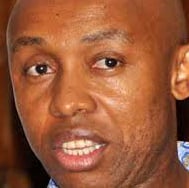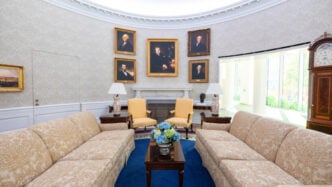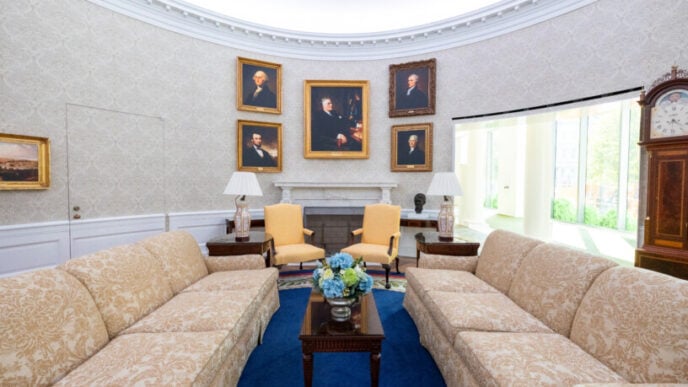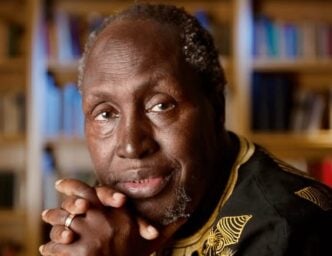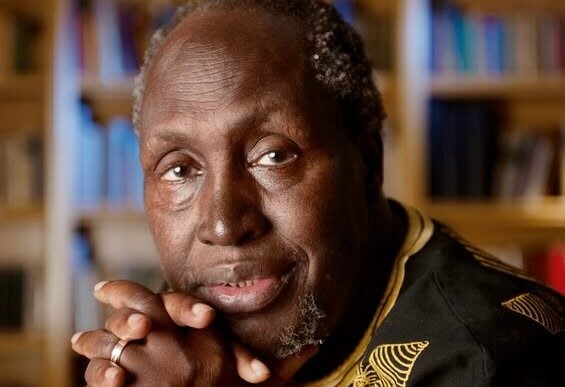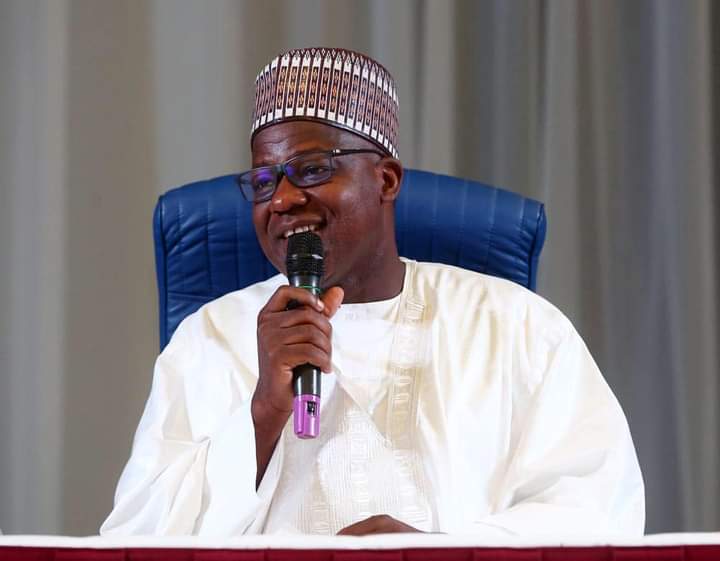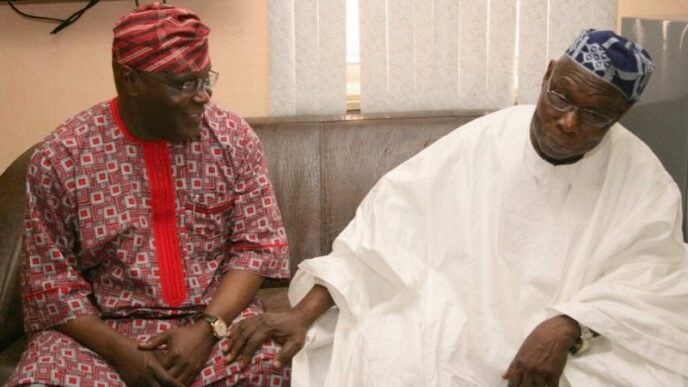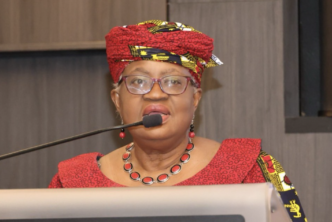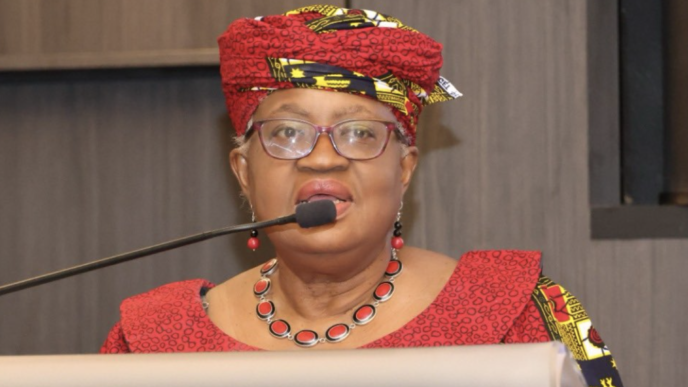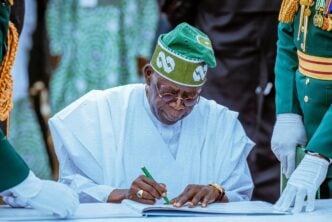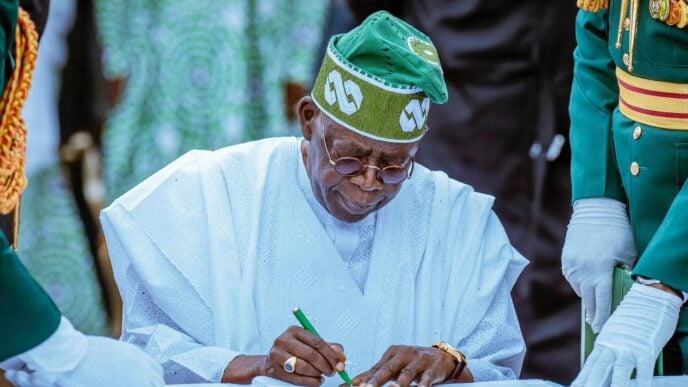Nasir el-Rufai
One of the memorable moments from the presidential campaign ahead of Nigeria’s 2023 elections featured then ruling party candidate, Bola Ahmed Tinubu, at the Chatham House in London in December 2022 allocating to leading members of his entourage responsibility for answering various questions from members of the public. For the questions on insecurity, he called on then governor of Kaduna state, Nasir el-Rufai, to address them. At the time, Candidate Bola Tinubu explained that he did that to advertise the versatility and cohesion of his team.
Many believed then that asking el-Rufai to respond to those questions show-cased his competence on insecurity. In hindsight, it seems more likely that candidate Tinubu intuited that Nasir el-Rufai embodied the manifestation in human form of Nigeria’s insecurity crisis.
This past week, a judgment by the Federal High Court in Kaduna, north-west Nigeria, showed exactly why candidate Tinubu’s hunch may have been well-founded.
The story needs context. When he was inaugurated as governor of Kaduna state on May 29 2015, Nasir el-Rufai identified insecurity as “an obstacle to progress” and promised to “work with law enforcement officials to drastically reduce violent crime” and “insure safety of life and limb.” Forgetting his inauguration day promise, el-Rufai spent eight years in office visiting the exact opposite to those whom he disliked or disagreed with.
Advertisement
Among el-Rufai’s victims, few were as brutalised as the Adara. The Adara are one of the 56 nations that make up the complex ethnic kaleidoscope of Kaduna state. The lands in Kajuru Local Government Area (LGA) in south-central Kaduna are fertile. The paramount chief of the Adara was known as the Agwam (Agom) Adara.
In the third week of October 2018, inter-communal violence broke out in Kasuwan Magani in Kajuru, pitting Kajuru youths against their Fulbe peers. It was reported at the time that the casualty count from this violence was over 55 persons. The state government imposed a 24-hour curfew over the affected parts. Thereafter, Nasir el-Rufai summoned a meeting in Kaduna. In attendance at the meeting was the paramount ruler of the Adara, Dr. Maiwada Raphael Galadima, Agwam Adara III, who was accompanied by his wife and aides.
This was Agwam Adara’s last earthly appearance. As he made his way home from that meeting on or about 21 October 2018, the Agwam Adara’s convoy was attacked and some of his aides and security detail were killed on the spot. The Agwam Adara himself and his wife were both abducted. Five days later, the dead body of the Agwam Adara was discovered. His wife was spared. It was later reported that he “was brutally murdered in October 2018 on his way to his palace after accompanying Governor Nasir el-Rufai to Kasuwan Magani to commiserate with the community over violence that claimed many lives.”
Advertisement
At the time, the government of Kaduna state led by el-Rufai promised to “pursue justice for this revered man…. of peace.” Nothing else was heard about that. The governor meanwhile was too busy to attend his funeral. Instead, he set about ensuring the dismantling of the Adara Kingdom.
Shortly after the killing of the Agwam Adara, el-Rufai abolished the kingdom, cannibalising it into emirates and essentially wiping away the rights of Adara’s majority of Christians and indigenous adherents to any claims over their community. It was widely believed, indeed reported, that the Agwam Adara “died for resisting attempts by Nasir el-Rufai, Governor of Kaduna State, to restructure Kajuru under the Adara Traditional Council to the Kajuru Emirate.”
All of this occurred a mere four months before both el-Rufai and his political benefactor, Muhammadu Buhari, were due to stand for re-election in ballots scheduled for February and March 2019. Kaduna state was a battleground in those contests and the Adara had good reason for antipathy towards the governor.
Voting in the presidential election was initially due to occur on 17 February, 2019. The day before, on or about 16 February, the governor dramatically announced that he alone had discovered the massacre of 66 Fulbe in Kajuru. No security agency was initially willing to back him up. On the contrary, the state police commissioner accused el-Rufai of having “pre-empted police investigations.” The National Emergency Management Agency, NEMA, like many residents in the affected area, accused him of having lied. The senator representing the affected communities in the Nigerian Senate at the time, Shehu Sani, suggested that el-Rufai was intentional in seeking to provoke the community ahead of highly contentious elections.
Advertisement
The man was not about to be deterred from habitually inflammatory routine, however. The Independent National Electoral Commission (INEC) deferred the vote by one week. So, el-Rufai decided to once more convene another town-hall in Kasuwan Magani. Among the participants was Awemi Dio Maisamari, an economist who was also president of the Adara Development Association, (ADA).
At the meeting, Awemi Dio sought to speak but el-Rufai allegedly shut him down, calling him “part of the problem.” Thereafter, security agents, allegedly on the orders of el-Rufai set upon the man, arrested him and threatened to shoot him if he uttered one word. Quickly, they bundled him out of the venue into a vehicle which drove him straight to the state headquarters of the dreaded Special Anti-Robbery Squad (SARS), where he was initially detained for three days. All this while, there was no warrant for his arrest.
Simultaneously, el-Rufai ordered the arrest and detention of the leadership of the Adara. In addition to Awemi Dio, the victims included the Wazirin Adara (Vizier) and former commissioner in the government of Kaduna State, Bawa Magaji; former Commissioner of Police, Sani Magaji; National Treasurer of the ADA Joseph Abdallah; Village Head of Maro, Tanko Maisamari; Village Head of Ungwan Gamo, Hosea Danladi; Village Head of Kutura, Joseph Ayuba; Village Head of Aguba, Tanko Wada; and Elder Ulu Maitumbi.
On 20 February, 2019 at the request of el-Rufai, a magistrate in Kaduna consigned them to pretrial detention on charges entirely constituted by his say-so. After three and a half months in detention and wide spread international outcry and advocacy, the attorney-general of Kaduna state advised that there was no case against the nine Adara elders. On 26 May 2019, they were released but el-Rufai had destroyed their lives.
Advertisement
In March 2024, Awemi Dio Maisamari sued el-Rufai in his personal capacity in Suit No. FHC/KD/CS/23/24 through their lawyer, Gloria Ballason, who has fast become el-Rufai’s legal nemesis. Last week, Justice Hauwa’u Buhari of the Federal High Court in Kaduna found him personally culpable for the abuse of the human rights of the Awemi Dio and Adara elders. In a judgment brimming with many telling paragraphs, the judge pointed out that the duty of a governor is to ensure the protection of lives and property and that public office is not meant to gratify the whims, ego or benefit of the occupant.
The court specifically found el-Rufai responsible for abuse of office and held that an occupant of public office cannot assert benefit of official immunities for acts of abuse of office. Even more, the court held that his misconduct in this case amounted to a breach of his duty as governor to protect all persons in the state.
Advertisement
The court exonerated the office of the state governor from liability, commended the courage of the attorney-general in advising against the executive abuse of office, and awarded damages of N900 million against el-Rufai personally. In good-old Nigerian parlance, the court dared to say to el-Rufai, El-Tufiakwa!
Nasir el-Rufai has sought recently to sell himself as an advocate for good government and against arbitrariness. His record in government belies his recent pretensions. This judgment reminds everyone why his effort to distract public attention deserves ridicule.
Advertisement
On June 25 2025, meanwhile, el-Rufai is due to take the witness stand in Abuja in his defamation case against two senior lawyers, Silas Onu and Auta Nyata, over the decision of the Nigerian Bar Association (NBA) to de-platform him in 2020. That should be some spectacle.
A lawyer and a teacher, Odinkalu can be reached at [email protected]
Advertisement
Views expressed by contributors are strictly personal and not of TheCable.
